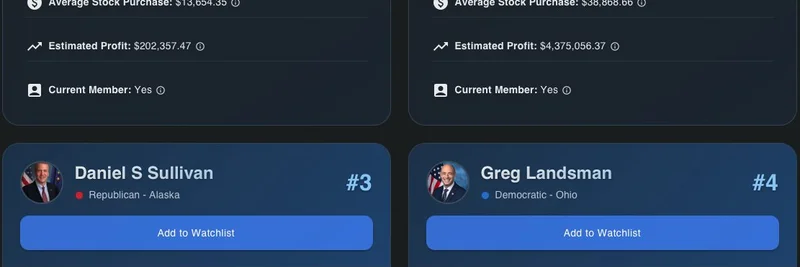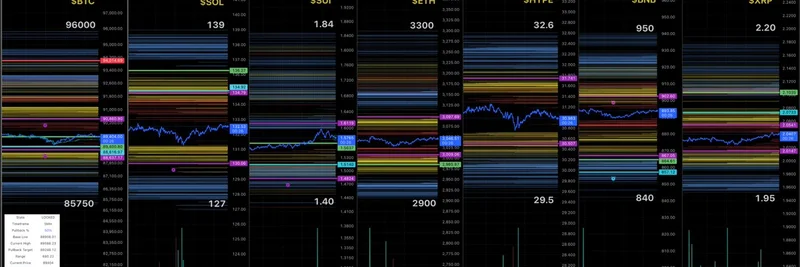Hey meme token fans and blockchain buffs! If you're tuned into the crypto chatter on X, you probably caught this eye-opening post from MartyParty, a well-known crypto commentator. In his tweet, he highlighted Treasury Secretary Scott Bessent's push for a ban on single-stock trading by members of Congress, taking a jab at politicians like Nancy Pelosi for their suspiciously high returns. Check out the original tweet for the full scoop.
This isn't just random noise—it's backed by real statements from Bessent himself. In a recent interview, he emphasized the need for this ban to restore public trust, pointing out how some lawmakers achieve "hedge-fund level returns" that raise eyebrows about potential insider advantages. For more details, see this Politico report on Bessent's comments.
Why This Matters for Meme Tokens
In the traditional stock market, retail investors often feel like they're playing a rigged game. Congress members have access to non-public information that can influence their trades, leading to outsized gains. Bessent's proposal aims to curb this by limiting lawmakers to diversified investments like ETFs, with long holding periods. It's a step toward leveling the field, but it also shines a light on why so many are flocking to crypto and meme tokens.
Meme tokens, built on blockchain, thrive on decentralization. There's no central authority or insider clique pulling strings—everyone from whales to small holders operates on the same transparent ledger. Projects like $DOGE or $PEPE have shown how community-driven hype can create value without the need for privileged info. If this ban passes, it could underscore the inequalities in TradFi (traditional finance) and push more folks toward the wild, fairer world of memes.
One reply to MartyParty's tweet perfectly captures this sentiment. User @GEOW001 laid out a laundry list of ways the stock market stacks the deck against everyday traders: pattern day trading rules, IPO access barriers, payment for order flow, and more. It's a reminder that in crypto, you don't face the same hurdles—anyone can jump in, trade freely, and even launch their own token.
Politicians and Crypto: The Irony
The conversation gets even juicier with replies calling out hypocrisy. One user noted, "Meanwhile president elect Trump grifts thousands of Americans for billions with his own coin." This nods to the Trump family's involvement in crypto ventures like World Liberty Financial, which recently raised eyebrows with its $1.5 billion ambitions. While not directly a meme token, it highlights how politicians are dipping into the crypto space themselves. For context, read about it in this Fortune article.
And let's not forget the data driving the debate. Another reply shared a snapshot from CapitolGains.io showing the "Congressional Stock Trading Leaderboard," where lawmakers like Daniel Meuser and Ron Wyden boast average annual returns over 50%—way above market averages.
This visual alone fuels the argument for reform and why blockchain's transparency is so appealing.
Looking Ahead: Opportunities in Meme Tokens
As discussions around insider trading heat up, meme tokens could see a surge in interest. They're not just jokes; they're experiments in community governance and viral economics. If you're new to this, start by exploring Solana-based memes like $TRUMP, which playfully ties into political themes while offering decentralized trading.
Bessent's push might not directly impact crypto, but it amplifies the narrative that blockchain is the future of fair finance. Stay tuned—whether it's bans in Congress or the next big meme pump, the intersection of politics and crypto is only getting more exciting.
What do you think? Could this ban accelerate meme token adoption? Drop your thoughts in the comments below!


